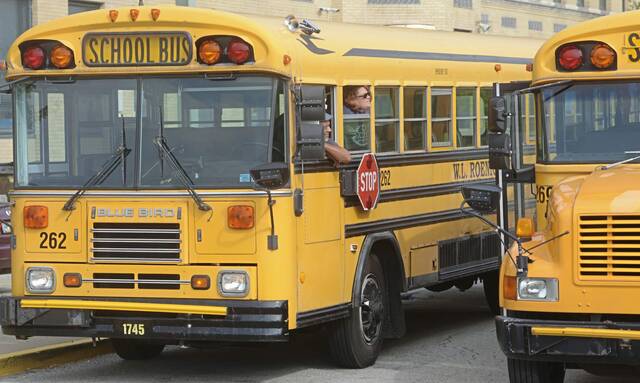Once again, Pittsburgh’s pandemic-strapped taxpayers are being asked to pony up more of their household incomes to close a purported $5.3 million shortfall, even as the Pittsburgh Public Schools Board sits on more than $145 million in surplus dollars tucked away in a “reserve” fund.
That’s right. Pittsburgh Public Schools is sitting on a horde of taxpayer dollars and, instead of spending it as intended, the board is asking us to pay more.
How can a board with $145 million in reserves ask members of a diminishing tax base to make up this shortfall when it exists solely on paper? And what is that money doing tucked away in a side account presumably intended for hard fiscal times?
Then-Auditor General Eugene DePasquale declared shenanigans on school reserve funds should not exceed 20% of a district’s overall spending amount. The newly enacted Pittsburgh Public Schools budget is $690 million. Their last reported general fund reserve clocked in at $144,636,996. Employing DePasquale’s calculations, Pittsburgh could have put $6 million in surplus funds toward this budget and still remained inside that rather generous 20% allowance. Factor in another $163 million in covid relief funds the district was given in federal tax dollars, and this tax increase moves from unnecessary to egregious.
Pittsburgh Public Schools, along with an estimated 221 other districts, is sitting on enough surplus money to forgo any tax increase. Once again, the bureaucratic impulse to raise taxes has overcome common sense.
This situation only looks worse when we consider that school enrollment in Pittsburgh has dropped by 15% while staff numbers have jumped by 14%. Cynical as it sounds, we must ask whether our taxpayer-funded public school system has become less about education and more about a full-employment program for politically powerful public- sector unions.
If the fiscal conduct in Pittsburgh is problematic, consider the implications statewide. Pennsylvania’s 500 school districts are sitting on a staggering $4.8 billion in surplus funds being kept in abeyance for rainy days of which a global pandemic and widespread, often arbitrary business shutdowns does not appear to qualify. For comparison, the state’s entire basic education budget last year was $7 billion.
This wolf-at-the-door posturing by school boards is an outgrowth of the misleading narrative by left-of-center advocates that Pennsylvania’s schools are underfunded. State funding for public schools has jumped by 29% since 2012 — and by 68% since 1990. Adjusted for inflation, state dollars to public schools has grown by 43% in the past 20 years.
In fact, Pennsylvania ranks fifth among the 50 states in total school funding, seventh in state funding and 24th in per-pupil funding. The tax-first crowd uses a bizarre metric to argue that state government contributes only 45% of public school funding. That is, in large part, because we fund our districts with property taxes and wealthier communities tend to pay more in property tax. Think of places like Mt. Lebanon.
The Commonwealth Foundation offered this rather trenchant observation: If Jeff Bezos gave Pennsylvania schools $10 billion per year, funding would jump from $19,000 to $25,000 per student — but state share would drop to 28%. On the flip side, if local funding was eliminated, per-pupil funding would drop to around $8,500 — but the state share would be around 85%. Anyone capable of basic math knows this is not progress.
But Bezos, of course, is unlikely to show up with a huge donation to our schools, which means we’ll be spared a rise in per-pupil funding, as well as a drop in the state’s percentage of contributions.
Rather, we’ll be left sitting here wondering why Pittsburgh Public Schools, and many others, are sitting on a secret stash and treating it as if it belongs to them. It doesn’t. It belongs to taxpayers who, once again, are being gouged to satisfy the impulse to raise taxes before thinking things through.
Sam DeMarco is a member of Allegheny County Council and chairman of the Republican Committee of Allegheny County








